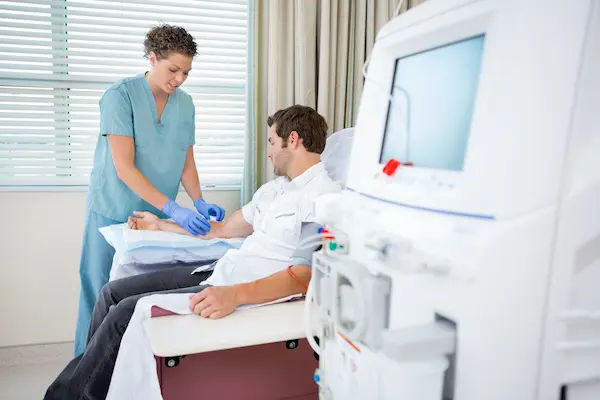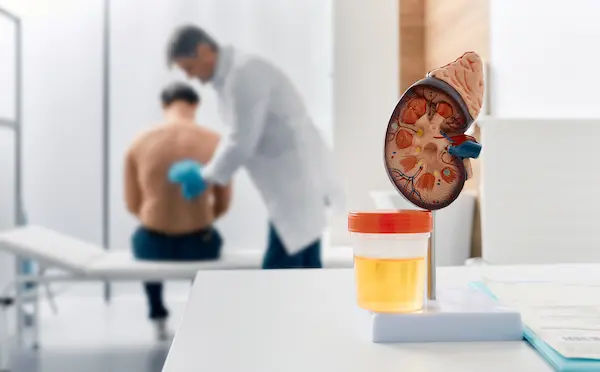- male
- 22 Years
- 22/01/2025
I'm 22 and was born with just one kidney. Lately, I've had high blood pressure and my serum creatinine has also gone up. It started at 1.9, then 2.24 after a few days, and on the day of my biopsy, it was 2.34. My eGFR is 40.8. After six days, my serum creatinine was 2.42 and potassium was 3.8. My doctor has put me on BP meds, defocord, and calcium tablets, and wants me to come back in a week. But Im worried. Is there hope for my serum creatinine to return to normal? Do you think Ill be okay again? How come I didnt notice any symptoms from the high BP and creatinine levels?
Answered by 1 Apollo Doctors
It's understandable to feel concerned, but with proper treatment, such as BP control, medications, and monitoring, it's possible to manage your condition and prevent further damage. The goal is to stabilize your kidney function and improve your overall health. Many people with high BP and creatinine don't experience noticeable symptoms, so it's important to keep regular check-ups to catch any changes early. Your doctor will guide you through the next steps for optimal care.
Dr. Dhankecha Suggests...
Consult a Nephrologist
Answered 04/07/2025
0
0

More Nephrology Health Queries
View allI'm really worried about my uncle who's a dialysis patient and is 67 years old. Usually, his blood pressure hovers around 160180, occasionally hitting 120140, but after his last dialysis session three days ago, it's dropped to 10070. Today, during dialysis, it went even lower, between 8090. What can we do to help increase his blood pressure?
Low blood pressure during dialysis may be due to 1. Excessive water removal, than the weight gain between dialysis 2. New onset cardiac problem 3.if the patient is having any internal infection 4. If patient is taking BP medicine before going to dialysis Clearly may be any one of them If the BP is low , dialysis may not be adequately done. Next Steps 2D Echo,ECG Health Tips Stop taking BP medicine before dialysis schedule
Answered by 1 Apollo Doctors
My creatinine level is at 5.5 and I have CKD, Dr Ranjit Jagtap from Pune said heart surgery isn't an option right now. What should I do to manage my condition and are there other treatments I can explore?
This condition may require clinical evaluation to determine the exact cause and treatment. Some cases can be managed conservatively, while others may need surgical intervention depending on size, symptoms, and severity. Regular follow-up is important to monitor progress.
Answered by 1 Apollo Doctors
Is lemon water good for kidneys?
Yes, it helps to prevent kidney stone .
Answered by 1 Apollo Doctors
Disclaimer: Answers on Apollo 247 are not intended to replace your doctor advice. Always seek help of a professional doctor in case of an medical emergency or ailment.





